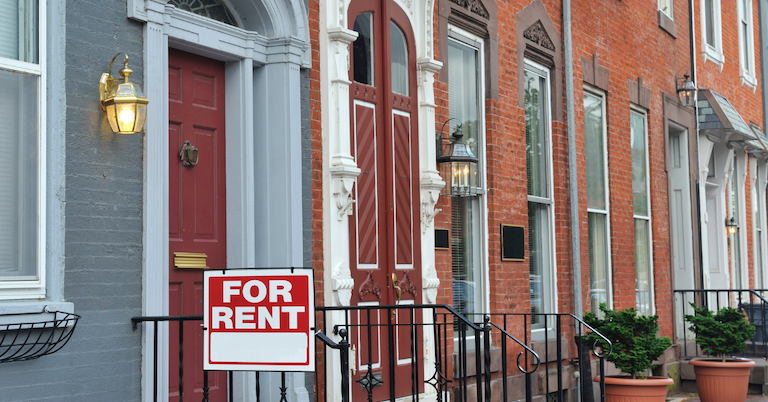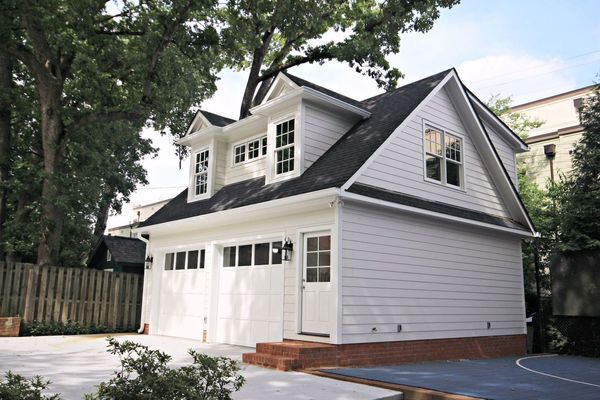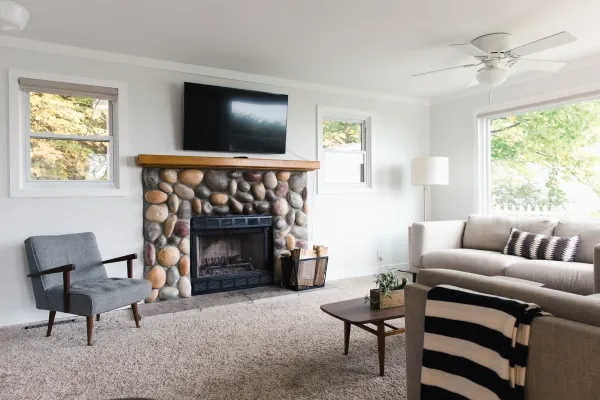As you already know, investing in rental properties can be a profitable strategy for those looking to earn a passive income and grow their investing portfolio. If you have already decided the rental property path is right for you, you are probably wondering how to get started.
Investing in rental properties isn't as easy as you may think. For beginners, it can be a challenge figuring out where to even start. The real estate investing world is full of methods and strategies aimed for success. Knowing all the basics is the easiest way to get your priorities straight when it comes to investing in rental properties.
The Types of Money You Can Make
While many believe that investing in stocks is a far better option due to drastic increase in prices, rentals are a great long term investment that provides more than just a steady cash flow. Here are some of the ways you make money through investing in rental properties.
Cash Flow
The largest stream of income you will receive as a rental property investor is cash flow. Cash flow refers to the income you earn from tenants after paying all other expenses. This includes the mortgage, maintenance costs, vacancy allowances, and property management. Rent, mortgage payments, and expenses will vary greatly on each property depending on the condition, the location, and the rental market.
Equity
Purchasing a rental below market value allows investors to create instant equity. Equity is the difference between what you owe on your mortgage and what your home is currently worth. Determining the value of a property can be difficult due to their differing features and locations. This produces great opportunities to find incredible deals. Through renovations, you can easily increase the equity of your rental property.
Tax Benefits
You are likely to come across some great tax benefits as a rental investor. Nearly all expenses on rentals are either deductible or depreciable. This includes the interest paid on the property’s mortgage. The biggest tax benefit by far is the depreciation. Depreciation is the process used to deduct the costs of buying and improving a rental property. In other words, investors can depreciate that percentage from their income which will lower their tax bill.
Appreciation
While property appreciated shouldn’t be the sole reason to invest in rentals, it is a nice little bonus. Depending on the property’s location, investors can make good money from property appreciation. The value of any property generally increases (appreciates) overtime depending on buyer demand. If you plan to resell the property, you can resell it at a higher price than you originally paid.
Financing and Investing Strategies
Knowing how much money to spend on a rental property can often be frustrating for beginner investors. Sure you know that rental properties can be a good investment, but how much money should you actually invest?
In most cases, you are going to need to take out an investment loan to finance the property. These types of loans typically require a downpayment of at least 20%. In addition to the down payment, you will also need to pay closing costs which will run you about 2% to 4% of the loan amount. If you are purchasing a fixer-upper, you are going to want to have some reserves set aside to make the necessary repairs.
Luckily, this isn’t the only way to purchase a rental property. Here are a couple of the most common investing strategies that can help you save on your investment.
Buy as an owner-occupant
While buying owner-occupant with the intent to rent is technically not allowed, there is a way around it. If you buy as an owner-occupant, you will need to live in the property for at least a year before you can turn it into a rental. This can be a good way to save money if you are not in a rush, or if you plan to spend time on renovations anyway.
Buying owner-occupant will allow you to apply for loans with much smaller down payment requirements. You can even take advantage of down payment assistance programs to help you lower the down payments even more, as well as loans for financial repairs.
Another way around buying as an owner occupant is to house hack. House hacking is when you combine buying as an owner occupant with renting out a house. This is easy to do if you purchase a multi-unit property or a larger home. Rent out units or parts of the home while you live in it to help you pay for the mortgage.
Use the BRRRR method
If buying as an owner-occupant isn’t an option, consider the BRRRR method for real estate investing. The BRRRR method stands for buy, rent, refinance, and repeat. When the BRRRR method is done correctly, investors can purchase a distressed property, fix it up, and rent it out for a strong cash flow. This is often with less than 20% down.
Through the cash-out refinance you will easily pay off the existing mortgage using the new loan terms, thereby pocketing the cash difference. You may need to wait a little longer to get the financial benefits but you will essentially get most, if not all, of your money back.
Property Types to Look Out For
Once you know how you plan to pay, it’s time to start looking for properties. Properties come in all shapes and sizes. The property you choose is dependent on your goals as an investor. Be on the lookout for properties below market value, but don’t purchase a property you can’t afford to renovate. Draw up a budget so you know what you can afford.
Single-family homes
Single-family homes are a great way to start out in the property investing world. These types of properties are very easy to finance and are easy to resell. Tenants of single-family homes pay all utilities and tend to take better care of the property. Because these types of tenants tend to stay around longer, you don’t have to worry too much about high turnover rates.
Multi-unit properties
With multi-unit properties, you’ll most likely produce a larger cash flow than you would with a traditional single-family home. However, you'll have to pay for some of the utilities along with lawn maintenance and other additional costs. While you have the opportunity to rent out to more tenants, you also face a larger turnover rate. Multi-unit properties can range from larger homes broken up into condos-style housing to apartment buildings.
Short Term/Vacation Rentals (AirBnb)
Vacation rentals or AirBnb’s are the latest trend in rental property investing. Depending on the location, many investors are able to make more money renting out their properties short term as a mini hotel than an actual long term living situation, also some people buy AirBnb stocks to even earn more aside from having their properties rented. Do your research on your local market and zoning laws beforehand to make sure this rental property type is allowed.
Property Management Requirements and Options
Part of owning a rental property is managing it as well. However, just because you are a landlord doesn’t mean you have to do all of the work yourself. In fact, managing rental properties often requires less effort than you think.
As a landlord, there is no need to do the manual maintenance work yourself unless you really want to. Most landlords will simply hire out contractors, plumbers, or other professionals to come to the home and resolve any maintenance issues. To protect yourself and your new property, it is also a good idea to invest in landlord insurance. This will cover property damage, lost rental income, and liability protection.
In addition to maintenance issues, you will also be responsible for advertising the property to find tenants, determining rental prices, screening tenants, collecting rent, and overseeing properties. While this is easy to do with a few rentals, it could become overwhelming as you take on more properties. If you find yourself burnt out by property maintenance, consider hiring a property manager.
With a property manager you will be able to have someone else deal with the day-to-day maintenance. This allows you to focus on more important matters when it comes to your rental properties. Your tenant’s experience is key to your investing success. With a good property manager, you shouldn’t have any issues.
Real Estate Investment Trusts Through Mobile Apps
You don’t have to earn a million dollars to invest in real estate. Doing so is now possible without owning physical rental properties through mobile apps for real estate investing.
With a real estate investing app, you can buy and sell shares of Real Estate Investment Trusts (REITs). The company invests the trusts in private loans backed by rental properties, such as condominiums, apartments, stalls, warehouses, commercial buildings, etc.
REIT investors can invest as low as USD$1 in commercial real estate and grow their money without minimums required. Diversify your real estate investment portfolio by choosing a reliable company that offers REIT with a downloadable mobile app. The app is your tool to track your investment and buy and sell shares. Now, real estate investing is made easier at your fingertips.
With REIT investing, you can receive dividends weekly and cash out straight to your bank account if you desire to do so. Hence, you can earn passive income. If you want to earn compounded earnings to grow your investment faster, you can automatically set your account to this option and benefit from increasing rental property values using a trusted real estate investing mobile app.
Conclusion
Keep in mind that rental properties investments are just that, an investment. Property success doesn’t come overnight and requires diligence to acquire a steady cash flow. Take the time to research local market conditions, financing strategies, and maintenance responsibilities. Be patient with the investing process and stay on top of your tenants. The money will start rolling in in no time.
Need some extra guidance finding rental properties and finding the best value in your local market? Get in touch with SimpleShowing. Our team of real estate experts will help you to find rental properties within the budget that will bring you investing success. Plus, with our buyer refund you can save even more money at closing. As an investor, that is not an opportunity you want to miss out on!






